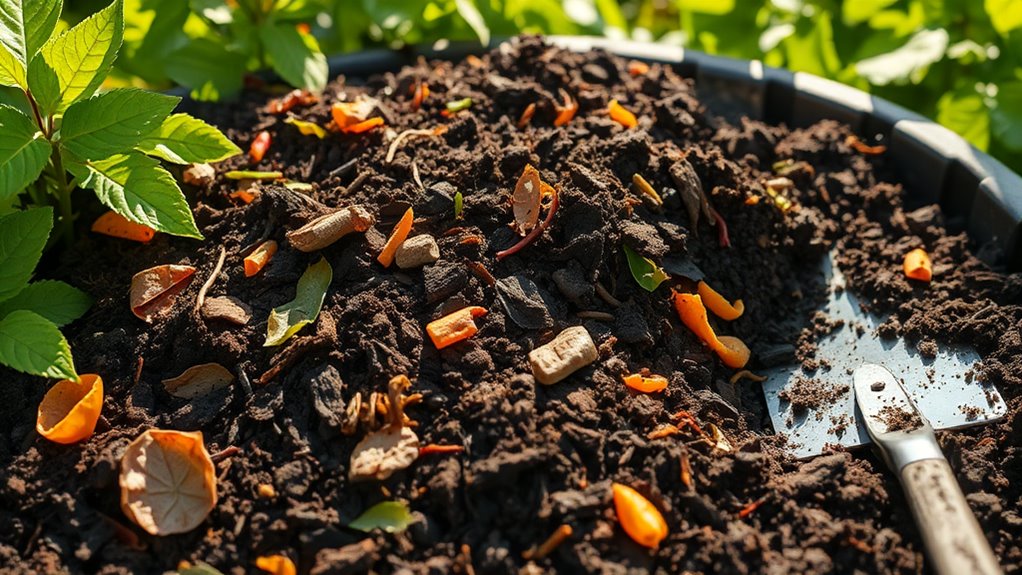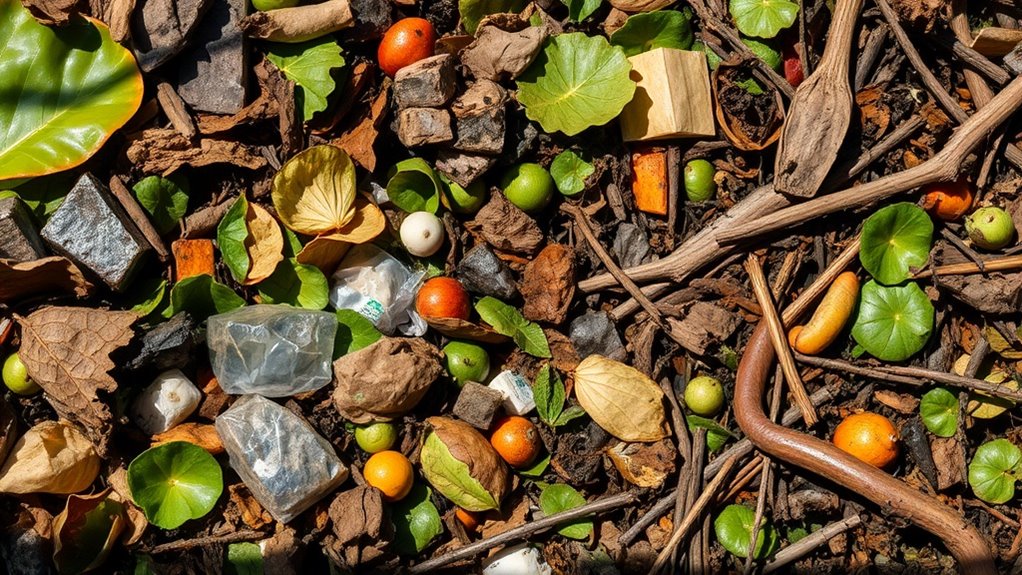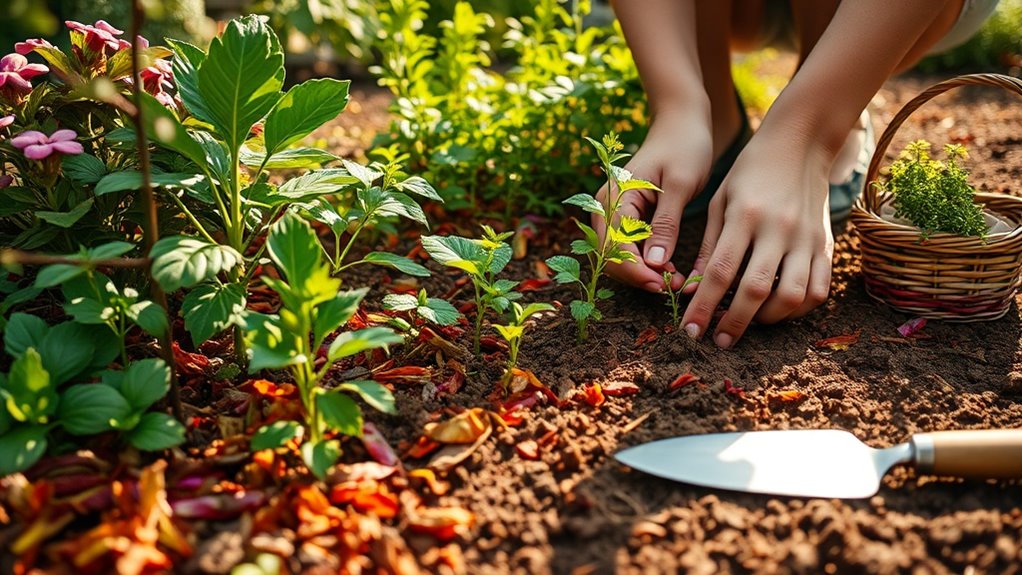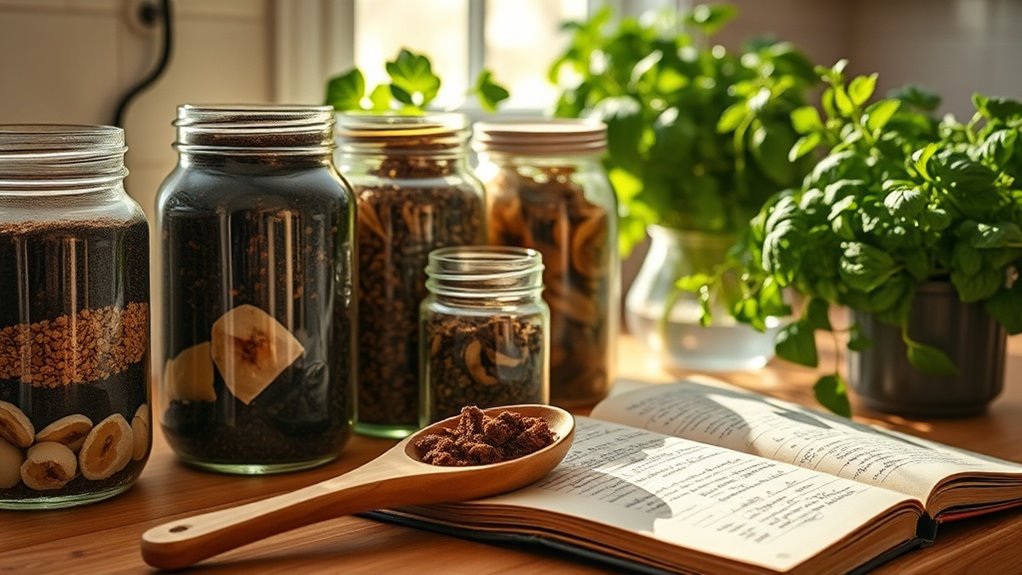My Compost Didn’t Work Until I Tried This One Fix
If your compost isn’t breaking down as expected, you’re not alone. Many struggle with balancing the carbon to nitrogen ratio, often leaning too heavily on high-carbon materials. This imbalance not only slows decomposition but can also lead to unpleasant odors. By adjusting this ratio, you can enhance your composting efforts significantly. Understanding the right mix is crucial, and there are specific strategies to optimize your pile’s performance. Let’s explore how you can turn your compost around.
Identifying Common Composting Issues
When you start composting, you might encounter several common issues that can hinder your success. From foul odors to slow decomposition, these problems often arise from imbalanced materials or improper aeration.
Effective compost troubleshooting involves regularly monitoring moisture levels, aerating your pile, and ensuring a suitable mix of green and brown materials. Compost tea can be a beneficial addition to your gardening routine, enhancing nutrient availability for your plants. Identifying and addressing these issues early can greatly enhance your composting experience.
The Importance of Carbon to Nitrogen Ratio
Understanding the carbon to nitrogen (C:N) ratio is crucial for successful composting, as it directly impacts the speed and quality of decomposition.
-
A balanced C:N ratio around 30:1 promotes efficient microbial activity.
-
High carbon materials, like dry leaves, are slow to decompose without nitrogen sources.
-
Excessive nitrogen can lead to odor issues and nutrient loss.
Maintaining the ideal C:N ratio not only enhances compost quality but also accelerates the decomposition process significantly.
Proper Uncovering Techniques for Aeration
A well-balanced carbon to nitrogen ratio isn’t the only factor in successful composting; proper aeration plays a vital role in the decomposition process.
To enhance aeration, uncover your compost pile by using a pitchfork, allowing fresh air to circulate. Turn the material every few weeks to break up clumps. This technique optimizes microbial activity, accelerating decomposition and ensuring your compost matures efficiently. Additionally, incorporating aerobic microbes into your compost can further speed up the breakdown of organic matter.
Adding Moisture: Striking the Right Balance
Getting the moisture level just right is crucial for effective composting.
Too little moisture can slow decomposition, while too much can create a soggy mess. Aim for a balance that supports microbial activity.
- Use a moisture meter for accuracy.
- Incorporate dry materials if it’s too wet.
- Regularly check moisture after rainfall or watering.
Finding this balance will enhance your compost’s efficiency. Building a compact compost bin can also help maintain optimal moisture levels by providing adequate airflow and drainage.
Turning Your Pile: How Often and Why
While many DIY composters might overlook the importance of turning their pile, doing so regularly is essential for maintaining an aerobic environment that promotes efficient decomposition.
Aim to turn your compost every two weeks. This process helps mix materials, introduces oxygen, and accelerates microbial activity.
Neglecting to turn your pile can lead to unpleasant odors and slow decomposition, ultimately hindering your composting efforts.





